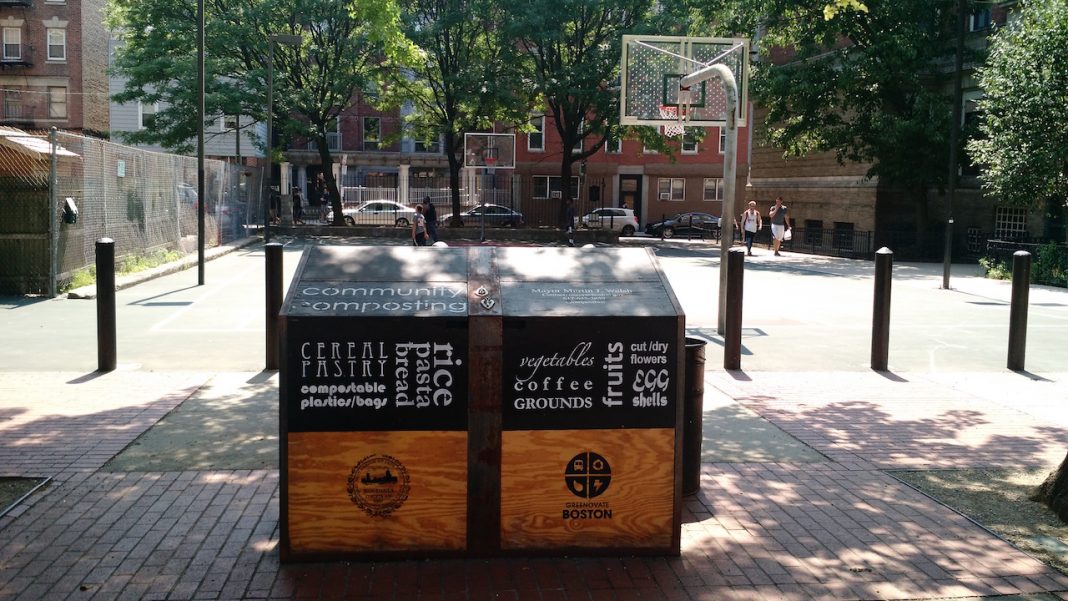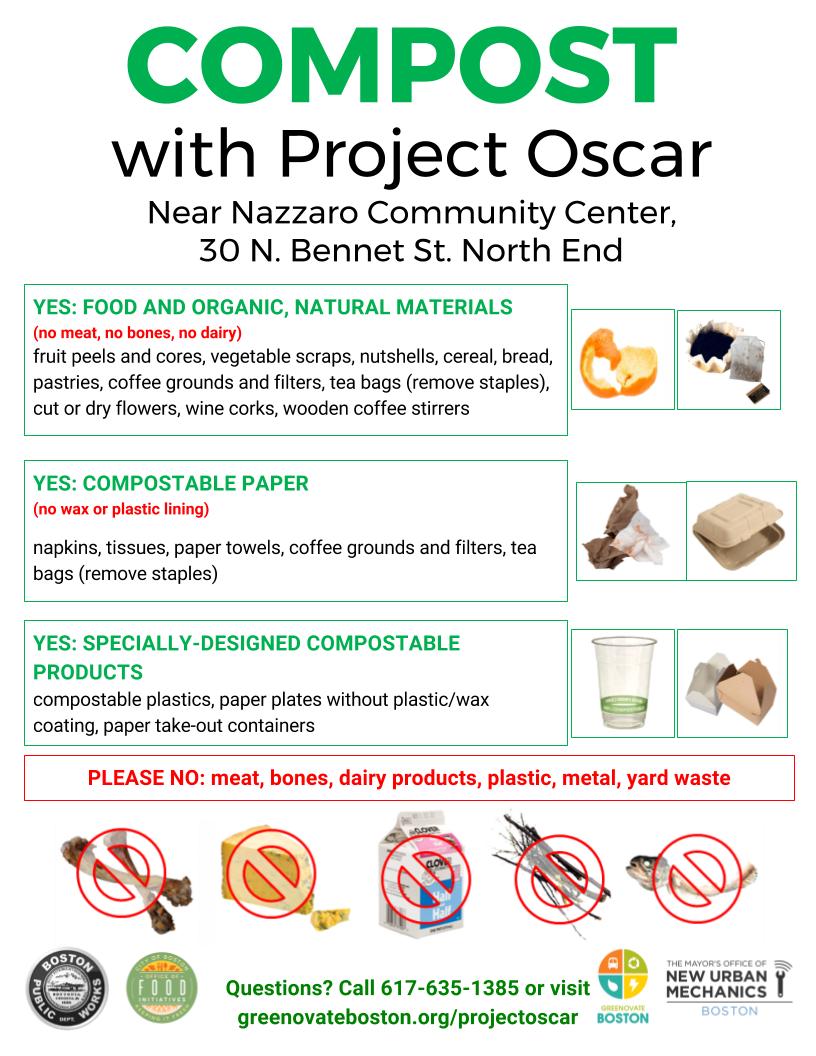
Since 2015, the once pilot program, Project Oscar, has been collecting composted materials and data throughout Boston. From June 2015 through April 2017, the North End has recycled about 30,000 pounds of food waste. For comparison, the same amount was composted in Jamaica from November 2015 through April 2017. Although the two neighborhoods are tied, Jamaica Plain’s data has been collected for a shorter amount of time although it is the larger neighborhood with one more composting bin in Jamaica Plain than in the North End today.
Project Oscar, named after the Sesame Street character, was born out of residents’ desire to continue to be a greener city.
You may have noticed the wooden composting container near the Nazzaro Center. The container is one of the many receptacles for composting materials in Boston as a part of Project Oscar. The pilot project began in 2014 in East Boston and the North End. The idea for having composting bins in the city was inspired by food waste collections at farmers’ markets carried out by the Environment, Energy, and Open Space Cabinet. Residents that liked the food waste collection said that they wanted that service to continue in a bigger way.
The last time the North End has heard about Project Oscar was in 2015. After speaking with Susan Cascino, the Recycling Policy Director for Boston’s Environment, Energy, and Open Space Cabinet, I have some more information on the project’s history and where it stands today.
Project Oscar Today:
Currently, there are ten bins located in six different locations. The project began with two bins in the North End and two bins in East Boston. It has since expanded to Jamaica Plain with three bins, Dorchester with one bin, Brighton with one bin, and City Hall has one bin also. “In total, the city has collected over 100,000 pounds of food waste since the program began,” Cascino said.
Cascino also talked to me about the average number of users for the North End, Jamaica Plain, and East Boston. The average tries to predict the number of households that compost every week without fail. These are the people who have made composting a part of their weekly routine. In the North End, there are 85 households using the compost program. Jamaica Plain has 120 households and East Boston has 53 households composting.
What’s Next?
The future of Project Oscar is undetermined. Cascino has said that it started under New Urban Mechanics as a pilot program. “If they want the program to continue they need to find a home [or department] in the city to continue to make it operate,” she said. No department has been able to take it on fully at the moment. The Public Works Department currently pick ups at the six locations throughout the city.
The bins are emptied by Public Works and brought to Haymarket’s organics compactor. After going through a process at Haymarket, the organic matter is sent to Rocky Hill Compost Site in Saugus. Cascino mentioned that the city wants to see what kind of demand there is for something like Project Oscar before opening up composting bins to the entire city. She fears that with opening the project to more people, there is a higher chance of contamination with food waste and other, non-compostable material.
There hasn’t been a facility in the metro area that could handle all of the city of Boston’s residential food waste. However, Waste Management has recently opened up a food waste processing facility in Charlestown, partnered with Save That Stuff Inc. With this new food processing plant, the city could be better equipped to move forward with a larger composting project that reaches city wide.
History:
2013
The idea of Project Oscar came about after composting in farmers’ markets was successful. Residents’ wanted a way for the to recycle food waste.
2014
A community compost pilot, which became Project Oscar, began in East Boston and the North End. The compost bins were locked up so that certain residents could access the bins by a code they received proper training. The residents of the two neighborhoods were prescreened and took an evaluation online to see if they were eligible. They answered questions to see if they knew how the composting worked.
Cascino says that it worked nicely because the city was able to educate people about composting, and also only people who were participating in the program were able to access the bins. No extra trash could be added by others without the code. Cascino continued, “The city had their emails so there was communication both ways for information. The residents could give feedback and then the city could inform residents of new information.”
2015
Mayor Walsh’s administration expanded the program to four more locations. Jamaica Plain, Brighton, Dorchester, and City Hall all received at least one composting bin.

If you’re interested in learning more about Project Oscar, head over to boston.gov or greenovateboston.org.
Should North End / Waterfront residents be composting more to catch up to Jamaica Plain’s stats? Let us know what you think in the comments!




Congratulations neighbors. Feel free to boost your numbers with those of us who compost in our own group arrangements. Bootstrap Compost can give you the stats for their clients in the North End. Our building alone is now composting over 2,000 pounds a year.